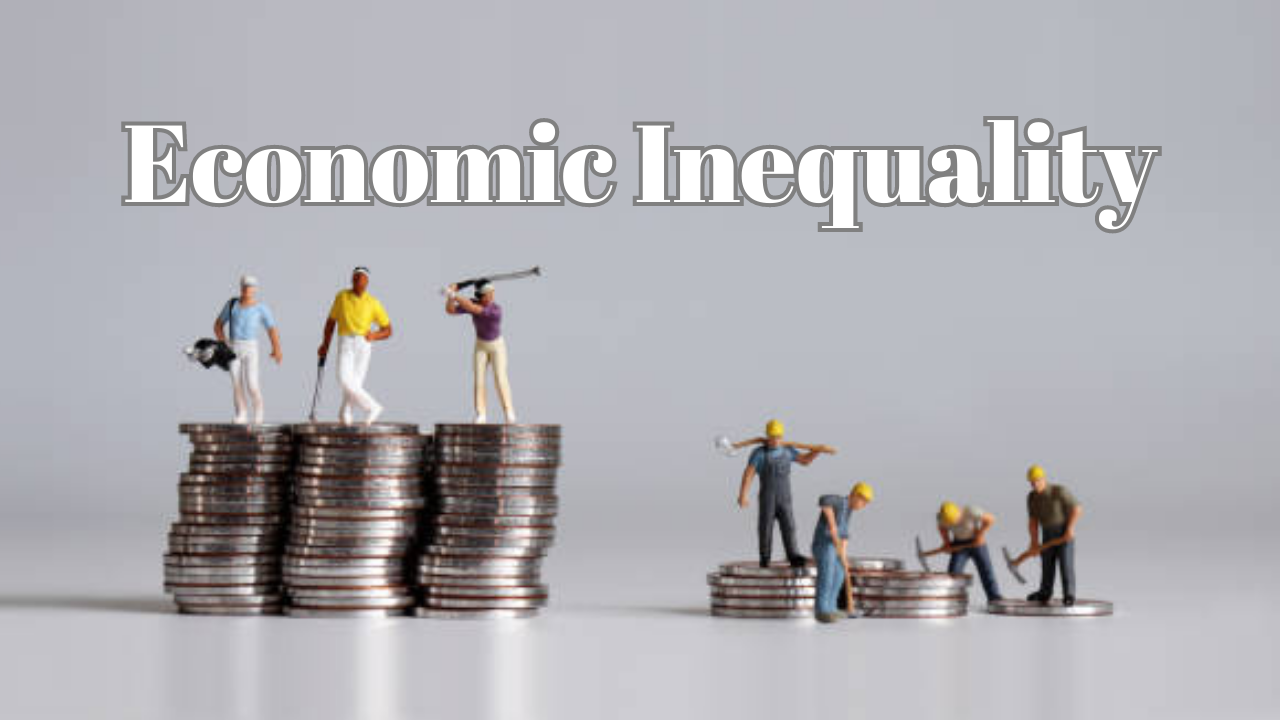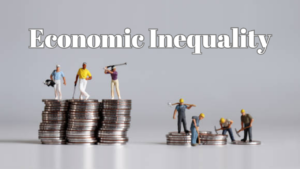
Economic Inequality – Causes, Consequences and Solutions
Introduction to Economic Inequality
Economic inequality refers to the unequal distribution of income, wealth, and resources among individuals or groups within a society or across different societies. It is often measured by indicators such as the Gini coefficient, which measures income or wealth inequality within a population. Economic inequality can manifest in various ways, such as differences in wages, salaries, and bonuses, access to education and healthcare, ownership of assets such as property and stocks, and opportunities for social and economic mobility.
Economic inequality can have significant social and economic consequences. For example, it can lead to social and political unrest, reduce economic growth, and limit opportunities for individuals and communities. It can also exacerbate other forms of inequality, such as gender, racial, and ethnic inequality.

There are various factors that contribute to economic inequality, such as differences in skills and education, technological change, globalization, tax policies, and political and institutional factors. Addressing economic inequality requires a multi-faceted approach that involves policies and interventions that address the root causes of inequality, such as investing in education and skills development, providing access to healthcare and social protection, and promoting fair and equitable tax policies.
Causes / Factors of Economic Inequality
There are many factors that contribute to economic inequality. Here are some of the most significant causes:
Differences in education and skills: Education and skills are significant drivers of economic inequality. People with more education and better skills tend to earn higher wages and have better job opportunities.
Technological change: Technological advances have changed the nature of work and the skills required for different jobs. As a result, some workers may experience job loss or wage stagnation, while others may benefit from new job opportunities and higher wages.
Globalization: Globalization has led to increased competition in the global economy, which can benefit some workers and industries but can also lead to job loss and wage stagnation for others.
Tax policies: Tax policies can influence the distribution of income and wealth by affecting how much individuals and corporations pay in taxes and how much government spends on social programs.
Institutional factors: Institutional factors such as discrimination, social exclusion, and unequal access to resources can also contribute to economic inequality.
Market concentration: Market concentration, where a few large companies dominate a market, can lead to reduced competition, higher prices, and reduced innovation, which can exacerbate economic inequality.
Consequences of Economic Inequality
Economic inequality can have significant social, economic, and political consequences. Here are some of the consequences of economic inequality:
Social unrest and instability: Economic inequality can lead to social unrest and instability, as people who feel left behind or marginalized may become more prone to protest and violence.
Reduced economic growth: Economic inequality can reduce economic growth as it can limit opportunities for investment and entrepreneurship, leading to less innovation, less social mobility, and less overall economic activity.
Health and well-being: Economic inequality can affect health and well-being, with lower-income individuals having higher rates of health problems, lower life expectancy, and reduced access to healthcare.
Political influence: Economic inequality can lead to political inequality, with wealthy individuals and corporations having more political influence than others, which can lead to policies that benefit the wealthy at the expense of others.
Crime and insecurity: Economic inequality can contribute to crime and insecurity, as people who are economically marginalized may resort to crime as a means of survival or to address their grievances.
Reduced social cohesion: Economic inequality can reduce social cohesion, as it can create divisions between different social groups and erode trust in institutions and in each other.
Solutions of Economic Inequality
Addressing economic inequality requires a multi-faceted approach that involves policies and interventions that address the root causes of inequality, such as investing in education and skills development, providing access to healthcare and social protection, promoting fair and equitable tax policies, addressing discrimination and social exclusion, and promoting competition and innovation.
Investing in education and skills development: Providing access to quality education and skills training can help individuals acquire the skills and knowledge needed to access higher-paying jobs and promote social mobility.
Promoting fair and equitable tax policies: Implementing fair and progressive tax policies can help redistribute wealth and income and reduce economic inequality.
Providing access to healthcare and social protection: Providing access to healthcare, social security, and other forms of social protection can help individuals and families manage financial risks and reduce economic insecurity.
Addressing discrimination and social exclusion: Addressing discrimination and social exclusion can help ensure that all individuals have equal access to economic opportunities.
Promoting competition and innovation: Promoting competition and innovation can help create new job opportunities and promote economic growth, particularly in industries and regions that have been left behind.
Strengthening labour protections: Strengthening labour protections and promoting collective bargaining can help workers negotiate for better wages and working conditions and reduce economic inequality.
Reducing market concentration: Reducing market concentration can help promote competition, innovation, and lower prices, particularly in industries where a few large companies dominate the market.
These solutions are not exhaustive and may vary depending on the specific context and causes of economic inequality in a particular society. However, addressing economic inequality is an essential step towards building more equitable and sustainable societies.
Further Readings
Unemployment in Pakistan; Causes, Consequences and Solutions
Poverty in Pakistan; Causes, Consequences, Solutions
Child Labour in Pakistan; Causes, Consequences and Solutions
Corruption in Pakistan; Causes, Consequences and Solutions
Illiteracy in Pakistan; Causes, Consequences, Solutions
Admin at The Pakistan Gazette

